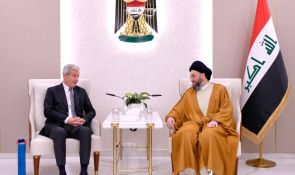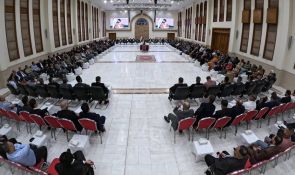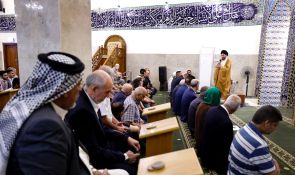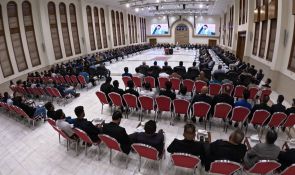SAYYID AMMAR AL-HAKIM: “Quite often, those who oppose and who criticize an official are friends, people who love him, who have compassion towards him and who are keen about his interest.”
In the past weeks, we talked about the Islamic theory in command and administration, indicating that the covenant of the Commander of the Faithful (Ú) to Malik al-Ashtar represents the summary of this theory. We stated that the command network in the Islamic vision is not confined to the president, minister and special degree senior officials but extends to include every network and every individual who occupies a position of responsibility. This individual may be a president of a factor, a company, a project or an organization, or he may be the head of a family. He, too, occupies a position of command, administration and challenge though it may be within a narrow circle. These restrictions and criteria about which the Commander of the Faithful (Ú) talked are not relevant to an elite group but extend to include all sections of the society. The greater the responsibility, the tougher and more precise these conditions in this individual will be.
We reached the eighth section of this covenant in which the Commander of the Faithful (Ú) talks about an official’s advisors when he is the leader, the one braving the challenges, and the characteristics and attributes such an advisor must have. In the seventh section, he (Ú) talked about the need to place the interest of the general public above that of the elite groups and special interest aristocrats. The official must please the general public, the public opinion, the sons of the nation, the citizens. You have serve the country and the citizen.
The official must not favor the advisors who look for the faults and secrets of the people and who instigate him against others…
Now we enter the eighth section and the characteristics of the advisors. The Commander of the Faithful (Ú) says here, “The furthermost from among all your subjects from you and the one whom you despise the most should be one who points out people’s faults.”










